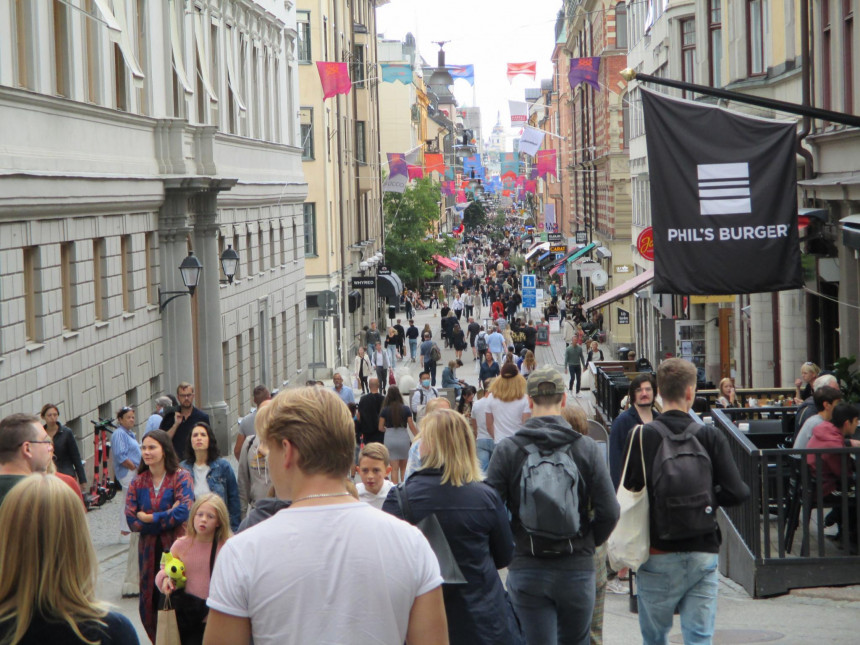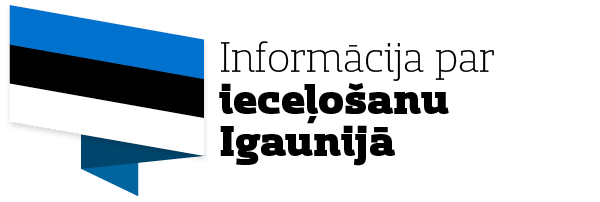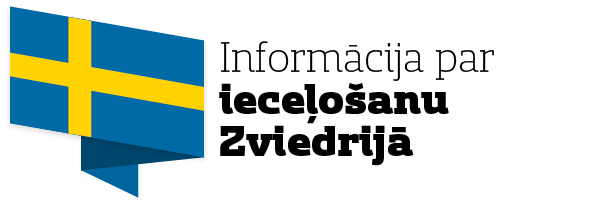Compared to Sweden, Latvia is a Covid-obsessed madhouse

My travel route was Riga-Tallinn-Stockholm and back. I went to Tallinn and back by car. From Tallinn to Stockholm and back - by ferry.
There were no inspections on the Latvian-Estonian border, either on the Latvian side or on the Estonian side. The police station was about 50 km from the border. As far as I could see, the Estonian police stopped all passenger cars. The only thing I was checked for were my identity documents. No questions were asked about Covid certificates, tests and the like. They asked about the destination and wished you a happy journey. The only place during the whole trip where the question about the Covid certificate was asked was in Tallinn - before boarding the ferry. One young person checked the printed certificate to see if the name and surname there matched the name and surname on the ticket. QR codes were not scanned by anyone. It was enough to show the paper and then you could board the ship.
There was a warning when buying ferry tickets online: "Tallink Grupp is not responsible for additional travel expenses for passengers who have not been authorized to enter Sweden." However, when entering Stockholm, absolutely nothing was checked. No one was checked for documents. No one was asked to present certificates, tests, etc. The flow of passengers in one place was monitored by two police officers, who watched the faces of those disembarking and looked for passengers that looked suspicious. Oh yes, just like other times we had to walk by a police dog trained to smell drugs. That's it. After that, neither documents nor any Covid certificates were required anywhere, not when leaving Stockholm and returning to the ferry, nor when entering Tallinn, nor crossing the Estonian-Latvian border on the way back. At the Ainaži-Ikla border crossing point, no one was checked, nor were there any border guards or other people dressed in uniforms on either side of the border.
Latvia - the land of face masks
As soon as I crossed the Latvian-Estonian border, all the face masks suddenly disappeared. In Estonia, face cloths are not seen in shops and cafes, nor outdoors. No one uses them. Face masks were used by only a few restaurant employees on the ferry to Stockholm. In Sweden, I didn't see face masks practically at all, not on the subway or on buses - nowhere. In Sweden, the use of face masks is not mandatory and is not recommended, no one uses them on the street, in shops, museums, bars and cafes, except for a few Asian-looking travelers. It is easy to notice that you have entered Latvia. Already in the first gas station, everyone is wearing masks. Yes! Latvia is a land of face masks. In Sweden (and also in Estonia), the most important requirements are in the form of recommendations without the threat of administrative penalties. For example, in Estonia, even when arriving from high-risk countries (China, South Korea, Singapore, Iran and four Italian regions), you have to monitor your health for 14 days and, if possible, avoid contact with others and remain in your place of residence. If symptoms of Covid occur, a doctor should be consulted informing them about the return from a high-risk country. In Sweden, many requirements (self-isolation after returning from a high-risk country, etc.) are really only expressed as suggestions and recommendations.
The recommendations are sensible, and it seems that in cases where people have trust, they voluntarily follow reasonable restrictions and do not try to break them without special need.
A comparison of the epidemiological rules for travelers in Estonia and Sweden leads to a very unfortunate conclusion about our country. Unlike Sweden and Estonia, Latvia has become a police state, where the government is able to govern its citizens only with total intimidation and the threat of punishment. In countries where people trust public administration, it turns out that it is quite enough to call on the public to comply with certain restrictions voluntarily, and these are complied with without the threat of administrative penalties. When I arrived back from Sweden, I turned on the TV. On Sunday evening, practically the most important news for LTV was that "the State Police suspects violations of Covid-19 restrictions during the Jēkabpils Festival". There was a "mass gathering of people" in the park. Due to "suspicions of possible violations", the police suspended the event, but people continued to wait and did not leave.
People! Latvia has been turned into a madhouse. Go to Sweden, see what the relationship between power and society is like there in limiting the epidemic. We must end the Covid hysteria constructed by the government of Krišjānis Kariņš to force the society to comply with some formal and pointless prohibitions, constantly threatening with punishments.
For reference!

Information on entering Estonia
Within three days before arriving in Estonia from the red zone (infection rate over 200), you must fill in the ENTRY FORM, which will allow you to cross the border faster. The form can also be filled out on paper immediately upon arrival, but in this case, you should consider the possible queues. The border guard has the right to request confirmation of the entry permit sent to the passengers by e-mail.
According to the amendments, you can enter Estonia without restrictions from a European country where the virus has a spread of 75 or fewer cases per 100,000 inhabitants in the last 14 days. If the level of infection in the country is between 75 and 200 cases, then on arrival in Estonia, the restrictions will not apply if the person has a vaccination certificate, proof of recovery from Covid-19 or a negative Coronavirus test. If a person does not have such a certificate, a Coronavirus test must be performed upon arrival in Estonia. Until the result is known, the person must remain at his or her place of residence.
If you come from a European country with an infection rate of more than 200, you must observe 10 days of self-isolation. This period can be shortened by receiving a negative test twice. A person who has been vaccinated or has recovered from Covid-19 is exempt from the restrictions.
Source: Tallink website

Information on entering Sweden
Restrictions on entry into Sweden are currently in force until 31/08/2021.
Starting 30/06/2021 the current general requirement is that all passengers (aged 18 and over) must present one of the following proofs on entry:
Proof of vaccination against Covid-19 with a vaccine approved in the European Union and at least two weeks have passed since the vaccination;
Proof that at least one injection of the vaccine has been given and at least two weeks have elapsed since vaccination;
Confirmation of a negative Covid-19 test result (performed not earlier than 72 hours before entering Sweden; the following tests are accepted: antigen tests, PCR tests, LAMP tests and TMA tests);
Evidence of recovery from Covid-19.
Source: Tallink website
*****
Be the first to read interesting news from Latvia and the world by joining our Telegram and Signal channels.
